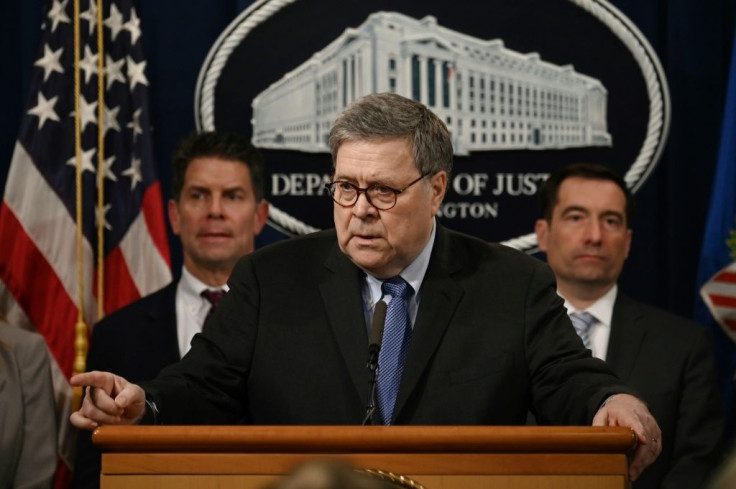Pensacola Navy Shooting Update: Attorney General Bill Barr Says Attack Was An 'Act of Terrorism'

Attorney General Bill Barr said Monday that the shooting on a Navy base in Pensacola, Florida, was an “act of terrorism.” The Dec. 6 shooting killed three American service members and injured eight other people.
“This was an act of terrorism,” Barr told reporters. “The evidence shows the shooter was motivated by jihadist ideology.”
The perpetrator of the attack, Saudi national Mohammed Saeed Alshamrani, had posted anti-U.S. and anti-Israeli messages on social media, where he expressed his hatred of the American people and criticized the close U.S.-Israeli relationship.
Alshamrani, a 21-year-old aviation student at the naval base, hosted a dinner party prior to the attack where he screened videos of past mass shootings. Alshamrani was in the United States on a training program for the Saudi military, which was the result of a security cooperation agreement between the Pentagon and Riyadh.
In the days following the Dec. 6 attack, the Navy grounded 300 Saudi flight students across the country. Defense Secretary Mark Esper also said that the military would review how it vets and evaluates foreign nationals as potential security threats.
More than 20 Saudi students at U.S. military bases are also being expelled due to ties with extremist organizations and other offenses. The students did not have a direct role in the Pensacola attack.
Yet, Barr has expressed his support for the U.S.-Saudi Arabia military partnership.
“There are thousands of allied pilots and other military personnel who receive training on military bases throughout the United States,” Barr said. “These military partnerships are critically important to our country. The Royal Saudi Air Force, which flies American-made aircraft, is an important military partner.”
He also said that Saudi Arabia “gave its complete and total support to the counterterrorism investigation” into the attack.
The Saudi Foreign Ministry has called the attack “horrific,” pledging its full support for the investigation. President Trump has kept close ties with Saudi Arabia despite the controversial killing of Washington Post columnist Jamal Khashoggi and the country’s controversial ties to extremism.
© Copyright IBTimes 2025. All rights reserved.





















